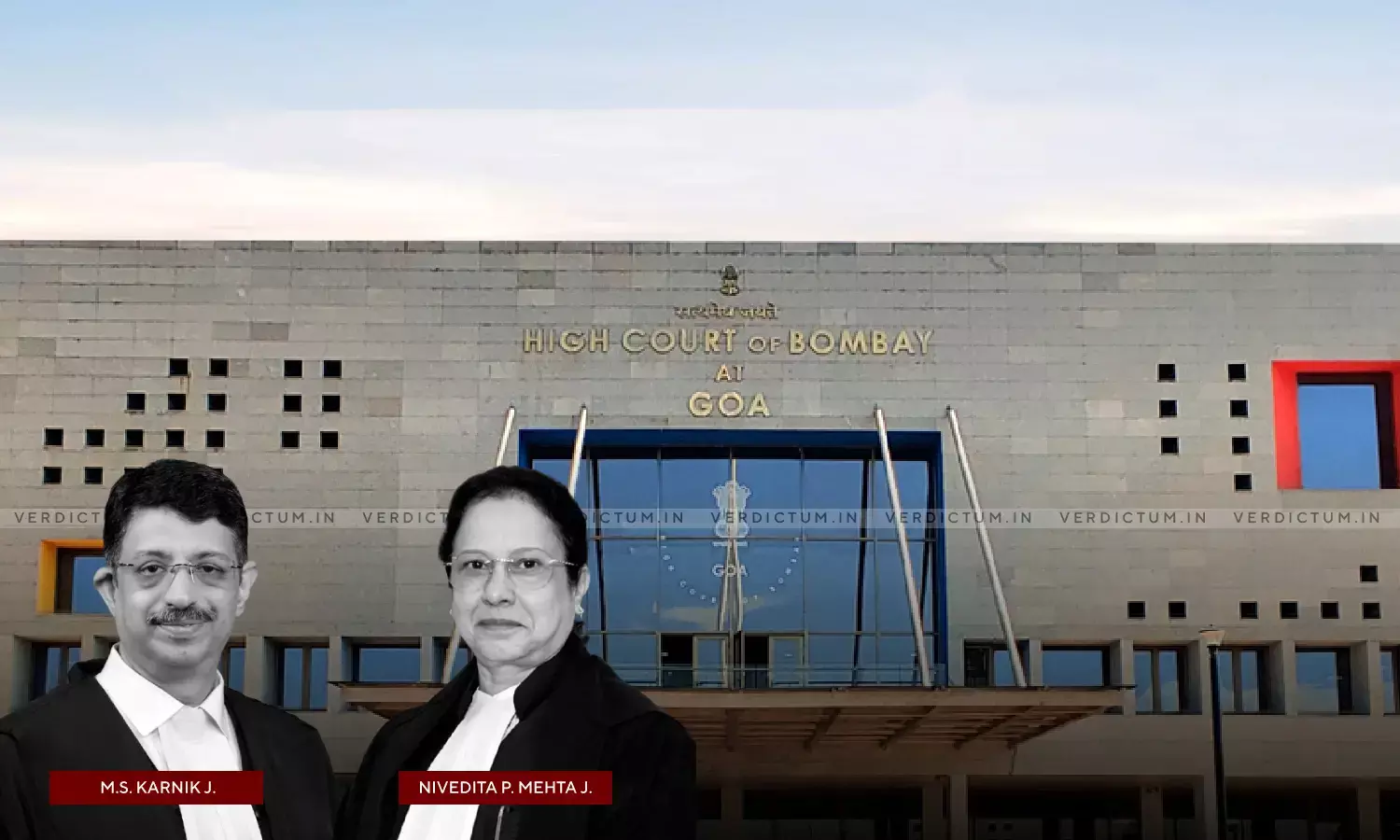No Evidence To Show That Petitioner Was Carrier Of Infection: Bombay HC Quashes FIR Alleging Violation Of Covid Lockdown Mask Mandate
The Bombay High Court quashed an FIR alleging violation of the Covid-19 lockdown mask mandate after observing that there was no evidence to show that the Petitioner was a carrier of the infection.
The Court allowed the Petition filed by the Petitioner under Section 528 of the BNSS to quash the FIR registered against him under Sections 269 and 188 of the IPC. The Police alleged that the Petitioner was allegedly found moving without a mask or permission from a competent authority. It was therefore alleged that the Petitioner had committed an act likely to spread infection of coronavirus epidemic disease and violated the Order under Section 144 of the CrPC promulgated by the State Government of Goa.
A Division Bench of Justice M.S. Karnik and Justice Nivedita P. Mehta observed, “Apart therefrom, the report also does not indicate the exact guidelines purportedly alleged to have been violated. In the absence of any such specific guidelines which is alleged to have been violated, there is no presumption that the act of the petitioner was unlawful. There is no material placed before this Court that the petitioner was suffering from COVID-19 positive and was moving in the locality in violation of the order under Section 144 of Cr.P.C., duly promulgated by the State Government of Goa. A perusal of record shows that the petitioner was never medically examined by the Investigating Agency during investigation so as to find out that he was suffering from any communicable/infectious disease. Therefore, the person cannot be said to have committed an act punishable under Section 269 of IPC.”
Advocate Rohan Desai appeared for the Petitioner, while Public Prosecutor S.G. Bhobe represented the Respondents.
The Petitioner had argued that there was no basis for registering a cognizable offence against him even if the contents of the FIR were deemed to be true. He submitted that the FIR was registered with a malafide intention to harass him.
The High Court noted that in order to attract Section 188 of the IPC, it must be shown that on account of such disobedience on the part of the Petitioner, a duly promulgated order by the Public Servant, something adverse happened. “No such event is alleged to have happened,” the Court stated.
Therefore, the Court stated that the offence under Section 188 of the IPC was not made out. “Thus, to constitute an offence under Section 188 of IPC, mere disobedience of order is not sufficient. The prosecution is required to prove the ingredients of offence therein to show that the person' has committed any act purportedly mentioned in Section 188 of IPC. Hence, this Court does not prima facie find any ingredients exist of the offence punishable under Sections 269 and 188 of IPC,” it explained.
The Court observed, “A perusal of Section 269 IPC shows that in order to attract the same, the act of an accused must be one which is likely to spread infection of any disease dangerous to life. A perusal of the report filed by the respondent under Section 173 Cr.P.C. does not indicate any prima facie evidence collected by the police as to whether the petitioner or the other members of the family were suffering from any infectious disease or would have caused the spread of any infectious disease. In the absence thereof, it cannot be assumed that the petitioner was either the carrier of infection or would have caused the spread thereof.”
Consequently, the Court held, “In view of the above discussions, the petition is allowed and the FIR dated 19.07.2020 bearing Crime No. 128/2020 for offence punishable under Sections 269 and 188 of IPC and the charge sheet No.131/2020 dated 26.09.2024 filed against the petitioner before the JMFC, Canacona is hereby quashed and set aside. The rule is made absolute in the above terms.”
Accordingly, the High Court allowed the Petition.
Cause Title: Deepak Naik @ Dipak Naik v. State Of Goa & Ors. (Neutral Citation: 2024:BHC-GOA:1941-DB)
Appearance:
Petitioner: Advocates Rohan Desai, Ashay Priolkar and Pranav Pathak
Respondents: Public Prosecutor S.G. Bhobe



